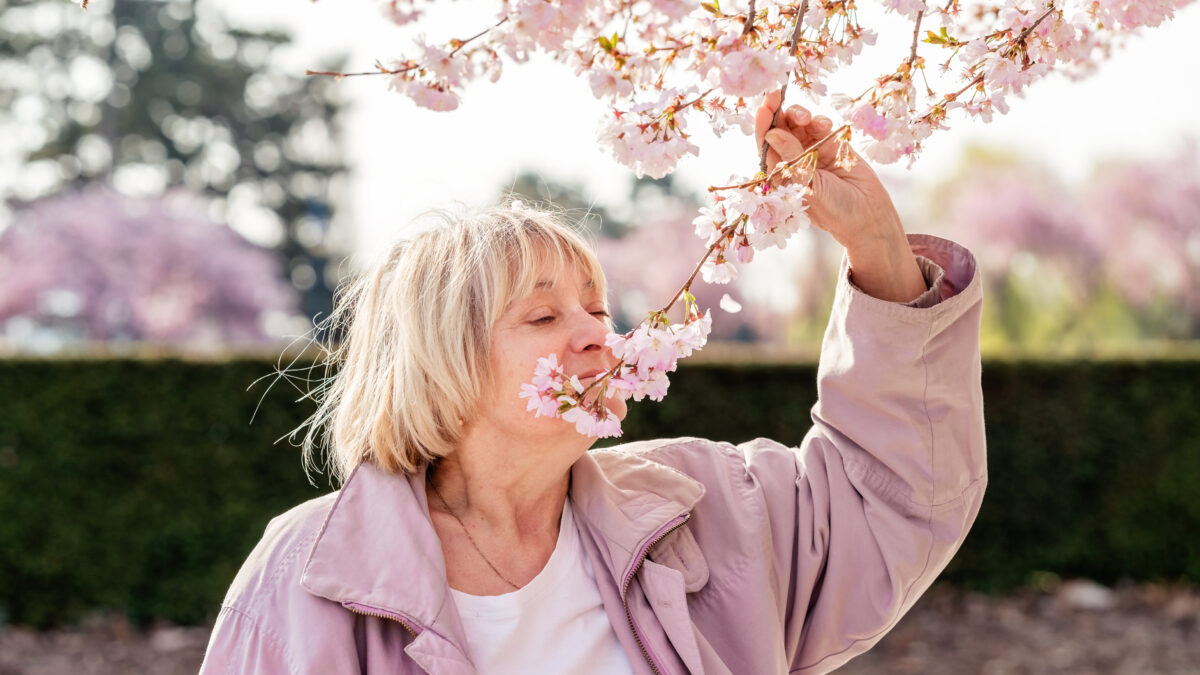While spring brings beautiful blooms, it also marks the return of pollen, an unwelcome trigger for seasonal allergies. If you’re experiencing symptoms like sneezing, itching, and watery eyes, know that you’re among the many affected.
Over the last few years, allergy season has become longer and more intense across many parts of the country due to warming temperatures that cause plants to produce pollen earlier in the spring, but they don’t have to be disruptive.
According to the CDC, nearly one in four adults in the United States suffers from these seasonal allergies.
Pollen affects people of all ages, but it can be particularly challenging for older adults, causing symptoms such as aggravated asthma, increased fatigue, and strain on the immune system and well-being. In fact, research shows that older adults appear to be more susceptible with around 28% of individuals aged 45 to 64 and 26.4% of those between 65 and 74 experiencing seasonal allergies.
The good news? With the right steps, seniors can reduce exposure, while staying active and comfortable—even as the pollen count climbs. Across Ingleside’s communities, residents are supported and equipped with wellness tips to help alleviate symptoms every step (and sneeze) of the way.
Tips to limit pollen exposure:
- Check the pollen count via your local news broadcast or weather app and plan your day accordingly.
- Avoid outdoor activities such as walks or runs, especially in the mornings.
- Wear a mask if you need to be outdoors.
- Close your windows and use A/C to recirculate the air, rather than drawing it from the outside.
- Consider changing clothes and showering when you arrive home after being outdoors.
- To take a proactive approach to combatting seasonal allergies, consider starting an over-the-counter nasal steroid spray like Flonase or Nasacort to reduce inflammation directly at the source or before your symptoms typically appear.
- For faster, short-term relief, non-sedating oral antihistamines like Claritin, Zyrtec, or Allegra can be helpful, though they’re typically less effective than sprays. Decongestants like Sudafed may also offer relief, but those with high blood pressure or other ailments should consult a medical professional first. It’s highly important to get a proper diagnosis from your doctor to identify specific allergens and tailor treatment accordingly.
At Ingleside, resident wellness is always in season. From clean, climate-controlled indoor spaces filled with activities, to personalized health support, our teams work to ensure communities are as allergy-friendly as possible.
Additionally, if you are among the pollen-suffering population, our team of certified wellness experts can share prevention tips and work with residents to manage symptoms before they become a bigger issue.
For more information about Ingleside’s communities or wellness programming, visit us online.

